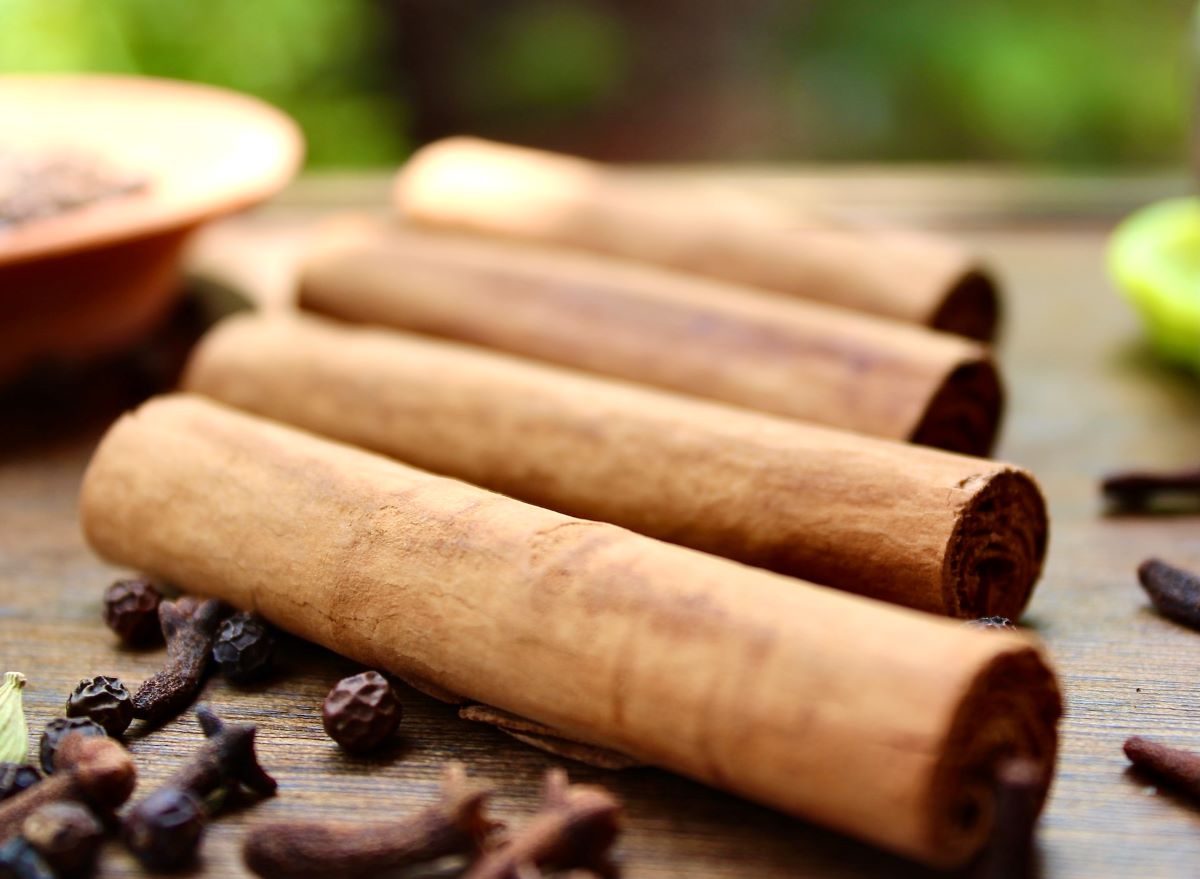
Body + Mind is reader-supported. We may earn an affiliate commission when you buy through some of the links on our site.
If you enjoy snickerdoodles, gingerbread men and a sprinkle of cinnamon on your morning oats, you might just be in luck. This tasty brownish-orange spice could drastically improve your health.
Researchers still have a long road ahead in testing the health benefits of cinnamon, but what they’ve turned up so far is quite promising. Experiments with rats and in test tubes show a large variety of uses for this common spice.
Cinnamon might be a game changer for people with insulin-resistant conditions like type 2 diabetes and polycystic ovarian syndrome (PCOS). Insulin is a hormone that carries sugar from your blood to your cells to use as energy. Resistance to the hormone translates to less sugar entering the cells and more remaining in your bloodstream.
One of the fantastic health benefits of cinnamon is it can function similarly to insulin, helping to carry sugar out of your blood and into the cells where it belongs. In addition to acting like insulin, cinnamon can also help naturally increase your body’s sensitivity to insulin.
Another possible benefit of cinnamon is its effect on the pancreas. Your pancreas releases digestive enzymes when you eat to break down your food. Cinnamon may interfere with those enzymes, slowing them down and releasing sugar into your bloodstream over an extended period. This may be vital in helping people with blood sugar control issues stabilize their levels by avoiding spikes.
Many digestion issues stem from poor gut health caused by disturbances or imbalances in your gut’s microbiome, a system of around 50 trillion bacteria. The ideal scenario is to have more good bacteria than bad in your gut, which keeps you healthy and aids digestion.
Cinnamon is one of a few spices that function as a prebiotic, feeding your gut’s healthy bacteria. The nourished bacteria help your body prepare to break down food faster and eliminate waste more efficiently. You’ll deal with less constipation and stomach upset.
High cholesterol is a common problem in the U.S., and if not managed properly, it can lead to heart disease and sometimes death. Studies are beginning to show a link between cinnamon supplementation and improved cholesterol levels. Along with stabilizing blood sugar, this spice can lower triglycerides, total cholesterol and bad cholesterol (LDL). Lowering all these markers would significantly impact your heart health, reducing your risk of disease.
Cancer research with cinnamon is still in the early stages. However, test tube experiments and studies on rats found cinnamon had an anti-cancer and anti-tumor effect. A compound within the spice, called cinnamaldehyde, may be able to kill off cancer cells, especially in the colon. It may also have the ability to inhibit cancer from taking root in the first place. Research still has a long way to go, including human studies to determine if the effects are the same and find the proper dosage.
Cinnamon may prove to be a key component of Alzheimer’s treatment and prevent some of the brain’s natural degeneration. An extract in the spice has been shown to block the buildup of proteins responsible for Alzheimer’s disease.
Like cancer research, scientists still have a lot of ground to cover before officially recommending it. Many studies needed an unsafe amount of cinnamon to achieve the desired result. While this may seem like a promising avenue, researchers must first work out all the kinks.
Some other great health benefits of cinnamon are its antimicrobial properties — it kills bacteria, viruses, mold, mildew and other microorganisms. Because of these perks, many companies have begun using the extract in disinfectant cleaners. You could even make some of your own if you enjoy making your products. It’s a great chemical-free way to clean your home.
Researchers are still unsure of the usage and dosage recommendations you need to enjoy the health benefits of cinnamon. Your current options include OTC supplements, essential oils, cleaners and as a spice in your favorite foods. Many claim they see the benefits of using cinnamon this way, but only time and more evidence will tell if they’re placebos or the real deal.
Your email address will only be used to send you our newsletter, and at any time you may unsubscribe. For more information, see our Privacy Policy.